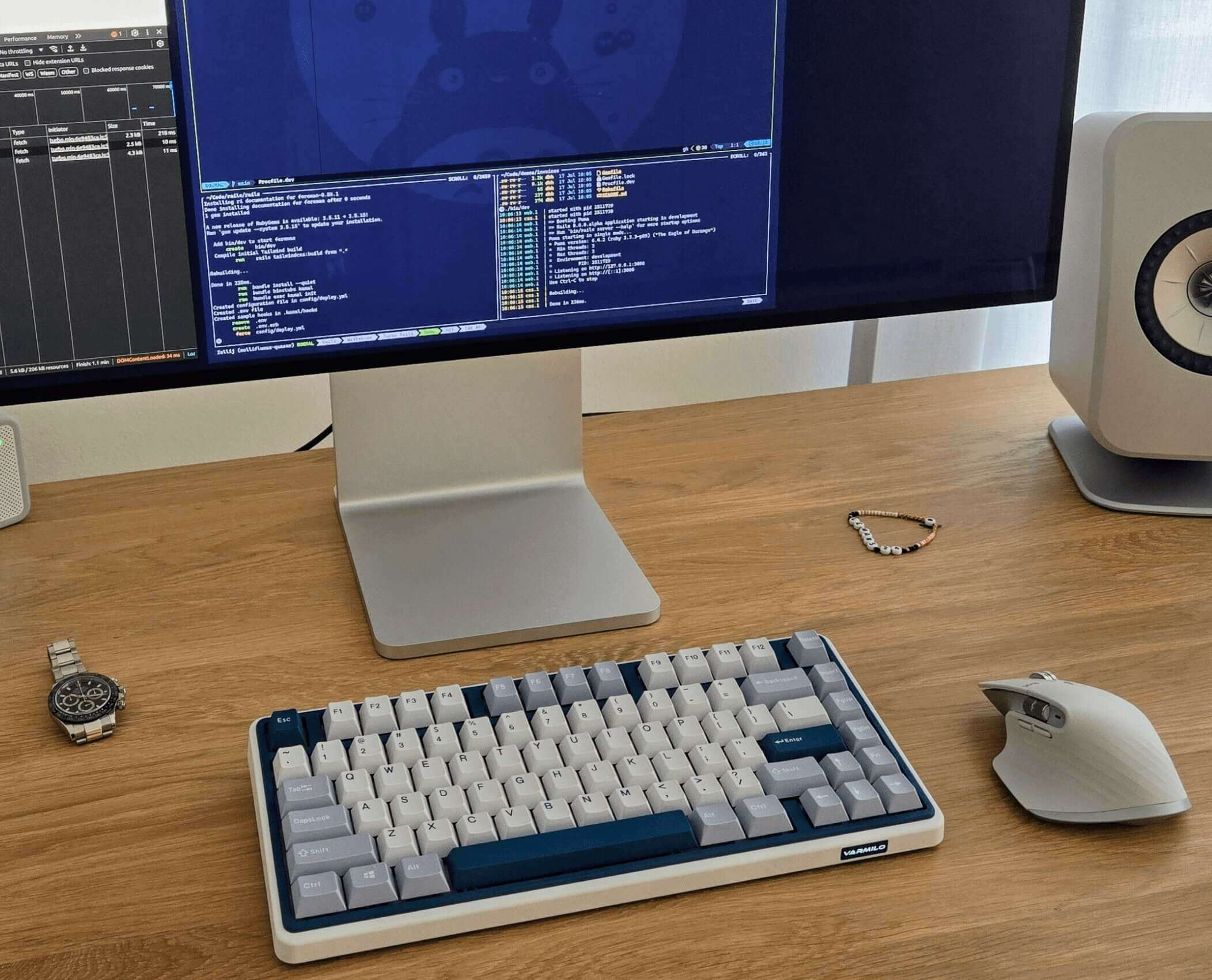Before diving into the world of mechanical keyboards, I'd never heard the word "thock" before. But I soon learned that it describes one of those strangely seductive sounds you can produce from pressing the keys on a keyboard tuned for acoustical joy. And now, dammit, I've acquired a taste for this type of ear candy, and I can't stop smiling as I type with a tune.
Thock isn't the only type of sound that connoisseurs of keyboard acoustics clamor for, mind you. There's also the clack, and even the creamy. But I think it's fair to say that thock is perhaps the most sought after. It's hard to describe exactly what it sounds like with words, so if you're curious, checkout this video from Hipyo Tech -- a YouTuber with more than a million followers who just reviews keyboards! This is one where he reviews the Lofree Flow, the keyboard I'm typing these very words on.
But even a video doesn't quite do it justice, because half the satisfaction of hearing that thock comes from it being a response to your fingers dancing across the keyboard. You're making this odd music simply by writing an email or fixing some code. Like a snake charmer mesmerizing a serpent.
Now mechanical keyboards have been a niche hobby for programmers for a long time, but I never really cared to give it a proper inquiry before. I was happy with the standard Apple Magic Keyboard for many, many years. Hell, I was even happy with the most despised Magic Mouse. It just didn't seem like a problem that was worth any attention to solve.
But there goes the misconception. Mechanical keyboards don't solve any problems. In fact, if anything, they bring quite a few with them! Batteries usually don't last as long, in part because many of them have RBG lights, and they can be annoyingly loud if you're around others. Yet that misses the point. Taking greater joy from such a mundane activity as typing is one of those rare daily treats that just makes life a little better, a little more interesting.
It's also a benign rabbit hole of lingo, knowledge, aesthetics, and preference. Kinda like mechanical watches, but mercifully more affordable. While you can spend hundreds of dollars on a single luxury mechanical keyboard, there's a huge variety of incredible models available from around $100-$200. (I wish more of my rewarding hobbies were that light on the wallet!).
And as you dive deeper, you learn not just about the difference between thock and clack. But about pre-lubed stabilizers, gasket flex, 2.4ghz polling rate advantages, key-cap designs, north vs sound facing LEDs, tactile vs linear switches, and about a hundred other nerdy details that go into making a great mechanical keyboard. I absolutely love leveling up on a new domain like this!
What I also love is the incredible display of capitalism in this space. I can scarcely believe the variety of choice for something so niche as a mechanical keyboard! There are literally hundreds of manufacturers all competing on nailing these nerdy details, and they're doing it at ever more affordable price points. The sheer variety and depth of this market would make Adam Smith blush.
You can see this in the evolution over just the past few years. It used to be that to get a truly delightful mechanical keyboard, you had to built it yourself. Which meant buying an empty shell of a board, pick just the right switches, insert those switches, then get some lube to make said switches properly smooth, and on, and on. And you can still do that, of course, but the prebuilt boards that are now available for just a few hundred dollars at most have caught up with where the keyboard nerds wanted the typing world to be all along.
Many of you may already be deep into the cave of mechanical keyboards and chuckle at what took me so long to discover the entrance, but that's exactly why I'm writing this. I had a few false starts in the mechanical keyboard world with boards from Keychron that I didn't really enjoy, so I just thought this wasn't a world for me. And I'm sure plenty of others either did the same or were turned off by the prospect of spending hours putting their own bespoke board together.
So allow me to recommend the two boards that turned my opinion around: The near-silent Varmilo Milo 75 and the creamy, thocky Lofree Flow 84. Both look amazing, feel amazing, and make a mockery of the $100 Apple Magic Keyboard that I thought was all I ever needed for so long. If you make a living from typing on a computer all day, I think you owe it to yourself to see if a mechanical board might not just add a bit of extra delight to your daily grind. I'd be surprised if it didn't.
